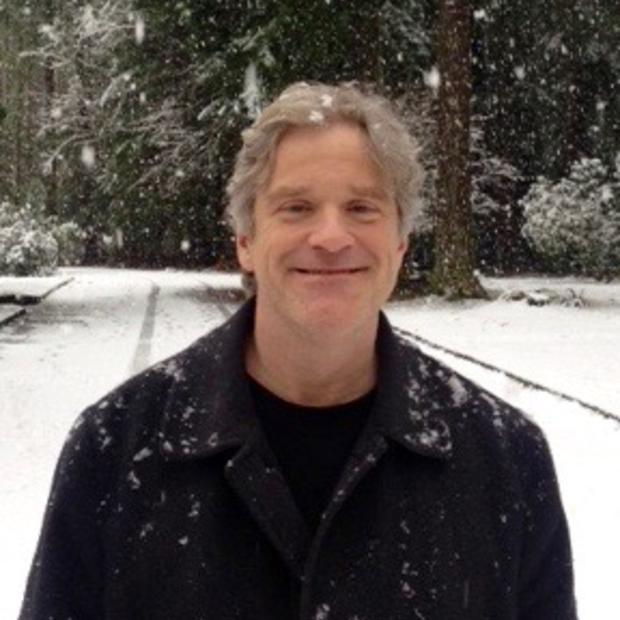Fast forward twenty years and imagine Jeff Bezos perched in his ziggurat-like office tower in Amazonia (nee south Lake Union.) Is Bezos Lionel Barrymore playing the penurious Henry Potter from It's a Wonderful Life or is he an altruistic Bill Gates plotting how to make gentle the life of this world? Sadly for now, the betting points more to Barrymore than to Bill G., at least if you're following The Seattle Times' series on Amazon.
"Some nonprofit officials say it can be difficult to find someone at Amazon to even talk with them. Other business leaders say they're hard-pressed to name examples of Amazon playing a significant role on broader public issues," the Seattle Times' Amy Martinez and Kristi Heim wrote in the opening of the ongoing series. "And while Amazon's logo smile appears on billions of boxes that crisscross the globe, neither that smile nor its name can be seen on a single building at its sprawling new campus in South Lake Union. The company won't even acknowledge how many employees it has in the area."
Martinez and Heim's article is a superb example of civic journalism (particularly if it pushes Amazon to become civically engaged.) Bezos has weighed in on public issues, notably supporting the campaign to stop a state income tax, a logical extension of his libertarian philosophy. When Gates was younger, he said that he eventually wanted to emulate the example of his parents as well as civic icons such as Eddie Carlson and Jim Ellis. Note to Bezos: It ain't too late to share with the 99 percent.
As all survivors of Dickensian prep schools know, there's a difference between angering and shaming. A slow burn isn't constructive but strategic shaming can be a cudgel. In pushing the legislature to pass a budget, Gov. Gregoire is navigating a fine line between schadenfreude and mission-oriented shoving. The News Tribune's Peter Callaghan quotes a fictitious "Gov. Grudgeheld": "I tried embarrassing them. I tried refusing to sign their bills. I tried putting on my 'eat your peas' voice. Nothing has worked. I mean, how do you embarrass people who are shameless? It’s like trying to embarrass a dog for drinking out of the toilet. So I might sign their bills, but I’m using an old Bic, and I’m keeping it. They’ll get no ceremonial pen and no photo. Definitely no photo."
No photo? Even for those legislators who are trying to get things done? The real or fictitious governor might instead embrace her inner-LBJ (we all have one) and corral the Senate and House leadership into the governor's conference room. Employing appropriate barnyard epithets, Gregoire could declare that she will personally recruit and raise money for opponents in all of their re-election campaigns unless they agree to a budget before April 10. Political blackmail? Consider it an action-forcing mechanism.
Let the shame extend to petition signers as well. Voters who signed Referendum 71 to overturn civil unions in Washington had their names released five months ago. However, the Secretary of State's office has heard of only one person, Paul Thomasson, who has reached out to nudge petition signers, in Thomasson's case with a "you don't know me" letter.
As the Seattle Times' Danny Westneat writes, "Thomasson is a gay man in Seattle who is using the release of the names to write directly to people who backed that 2009 measure. His theory is they are the ones most likely to sign a new measure this spring that he strongly opposes: Referendum 74, to overturn gay marriage. 'I can't know what motivated you to sign the petition for R-71, but I sincerely hope and pray that you will not sign the petition for R-74,' he wrote." Thomasson appears to appreciate that difference between angering and shaming.
Could Japan's tsunami debris actually pose a threat to Washington? Washingtonians won't experience the debris field until early next year, but lawmakers are already scrambling for the potential economic and health fallout.
"A year after the devastating earthquake in Japan, up to 100,000 tons of tsunami-generated debris is posing an urgent threat to coastal economies in the western United States," KPLU's Bellamy Pailthorp reports. "That’s according to Senators Maria Cantwell and Mark Begich, who have written a letter to President Barack Obama, asking that emergency research funds from the National Science Foundation be mobilized to help scientists hone in on what needs to be done to prepare for the arrival of the debris."
Lastly, on Sunday the Herald ended its series on the closing of the Kimberly-Clark mill and the attendant impact on generations of Everett-ites. It merits a read, along with a photo gallery that evokes Grant Wood's American Gothic and Walker Evans.
Link Summary
Seattle Times, "Amazon a virtual no-show in hometown philanthropy"
The News Tribune, "No pens, no photos--hey, it might save the budget"
Seattle Times, "Personal contact politics"
EarthFix,, "Tsunami debris demands emergency research"
The Herald, "Kimberly Clark mill is part of the Everett we've lost"


